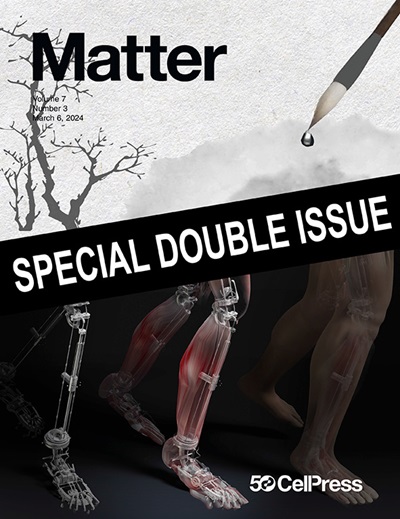促进生物塑料在抑制塑料污染方面的发现
IF 17.5
1区 材料科学
Q1 MATERIALS SCIENCE, MULTIDISCIPLINARY
引用次数: 0
摘要
生物塑料可以实现更可持续的塑料生命周期,并在遏制塑料污染方面发挥关键作用。然而,在避免意外环境成本的同时,超越石化塑料仍然是一个挑战。现在,新兴的技术工具,包括代谢工程、基因组编辑、人工智能和自动化,加速了生物塑料的进化,促进了循环塑料经济。本文章由计算机程序翻译,如有差异,请以英文原文为准。
Boosting bioplastics’ discovery for curbing plastic pollution
Bioplastics stand to enable more sustainable plastic life cycles and act as a key driver in curbing plastic pollution. Yet, outperforming petrochemical plastics while avoiding unintended environmental costs remains a challenge. Now, emerging technical tools, including metabolic engineering, genome editing, artificial intelligence, and automation, accelerate bioplastics’ evolution to promote a circular plastics economy.
求助全文
通过发布文献求助,成功后即可免费获取论文全文。
去求助
来源期刊

Matter
MATERIALS SCIENCE, MULTIDISCIPLINARY-
CiteScore
26.30
自引率
2.60%
发文量
367
期刊介绍:
Matter, a monthly journal affiliated with Cell, spans the broad field of materials science from nano to macro levels,covering fundamentals to applications. Embracing groundbreaking technologies,it includes full-length research articles,reviews, perspectives,previews, opinions, personnel stories, and general editorial content.
Matter aims to be the primary resource for researchers in academia and industry, inspiring the next generation of materials scientists.
 求助内容:
求助内容: 应助结果提醒方式:
应助结果提醒方式:


